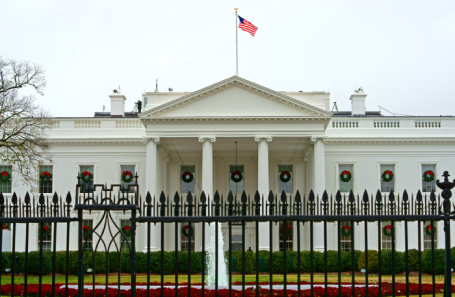As stated in the document from the US Treasury, the exception only applies to transactions for settlements in the energy sector. However, the ban on importing Russian energy resources to the US remains in place. Analysts note that this exemption effectively applies only to deals involving enriched uranium.

The US has temporarily allowed transactions with Russian sanctioned banks for settlements in the energy sector. The American Treasury has published a license for such transactions. It will be valid for six months — until November 1 — with the possibility of extension.
Foreign companies will be able to pay for the production and delivery of oil and petroleum products, oils, LNG, as well as coal, wood, and uranium through Russian banks. Transactions with suppliers of nuclear, thermal, and renewables energy sources are also permitted.
Among the banks through which transactions can be conducted without the risk of secondary sanctions are VTB, Alfa-Bank, Sberbank, Otkritie, Rosbank, VEB.RF, and others, as well as the Central Bank as a regulator. Earlier, US authorities noted that they are trying to set sanctions in a way that would reduce Russian revenues from oil and gas exports, but wouldn’t lead to an energy crisis in the world.
Meanwhile, European sanctions against these banks remain in full force. Therefore, the exemption from the US Treasury applies primarily to American companies. Leading expert at the Financial University and the National Energy Security Fund, Igor Yushkov, comments:
— This does not cancel the previous sanctions: as of April 1, 2022, it was prohibited to export Russian oil, petroleum products, coal, gas to the US, so these sanctions remain in effect. This permission to make payments through a number of banks for energy supplies, in fact, applies only to enriched uranium, everything else is prohibited. So, this is a very limited segment. Therefore, the short duration of these exemptions from sanctions against Russian banks is due to the fact that by that time, the US will likely impose sanctions on enriched uranium from Russia. It will also be subject to an embargo. This is a temporary measure, and we should be prepared for the fact that Russia will not be supplying any energy resources, including nuclear fuel, to the US in the near future, and then sanctions against Russian banks will be tightened. There are no exceptions for all operations, only specific types of operations are exempted, and this doesn’t play a significant role for them.
— What benefits will this bring to the Russian economy during this period?
— Russia is earning, perhaps not so much money directly but mainly through “Rosatom,” rather than directly to the budget, nevertheless, these are certain funds that we would not want to lose. Vladimir Putin recently spoke about not always responding symmetrically to sanctions, meaning that some sanctions will harm us. Therefore, gas supplies to Europe or nuclear fuel to the US have not been stopped yet. Here the attempt is precisely to maximize earnings.
— Similar measures may follow for Europeans?
— Yes, but the question is when. Americans will not explicitly pressure Europeans for now because they have more connections with the nuclear industry in Russia, but in half a year or a year, they will still lead Europeans in that direction.
Additional insights come from the Chief Economist at RusSelhozBank, Maxim Petronevich:
— Judging by the timing of the issued permits, this is largely related to the elections in the US. Statistics show that inflation is one of the main domestic economic problems in America and remains at a fairly high level. One of the factors driving inflation in the US is oil prices. In my opinion, the administration is looking for any ways to restrict these prices. In this case, easing the payment regime with Russian banks for oil and gas supplies is one of these measures.
— So there are some companies not in Europe or the US, most likely Asian ones, that have been afraid of secondary sanctions until now?
— Yes, absolutely right. This could also be about oil traders who actively purchase oil from Russia and take longer to deliver it to their customers.
— How were things going in the past two years?
— Unfortunately, there is very little information here. As we know, this is a closed topic.
— Most of the banks with which the US Treasury has allowed operations are also under EU sanctions. Companies were also concerned about secondary sanctions, also from the EU?
— Certainly, this risk remains, but it is more of a voluntary risk. Many companies may have voluntarily taken on the obligation not to cooperate with Russian companies under the influence of the general political background, but given that Americans are the leaders in tracking companies that continue to work with Russia. And even this temporary easing will lead to increased activity. Let’s not forget that the US dollar payment system remains dominant in the world, and many will seize the opportunity to temporarily continue their cooperation with Russia. The outcome will show whether they will extend it.
— Is there a possibility of an extension?
— There is always a possibility, but in this case, it is low. A lot will depend on the election outcome and the situation in the energy market.
Just yesterday evening, Bloomberg reported that the White House is considering imposing sanctions on Russian uranium imports. The issue is being studied by the National Security Council and the US Department of Energy.
In December of last year, the ban on importing Russian uranium was approved by the House of Representatives as one of the options for tightening sanctions. The document proposed restrictions on the supply of low-enriched uranium produced in Russia until 2040.


